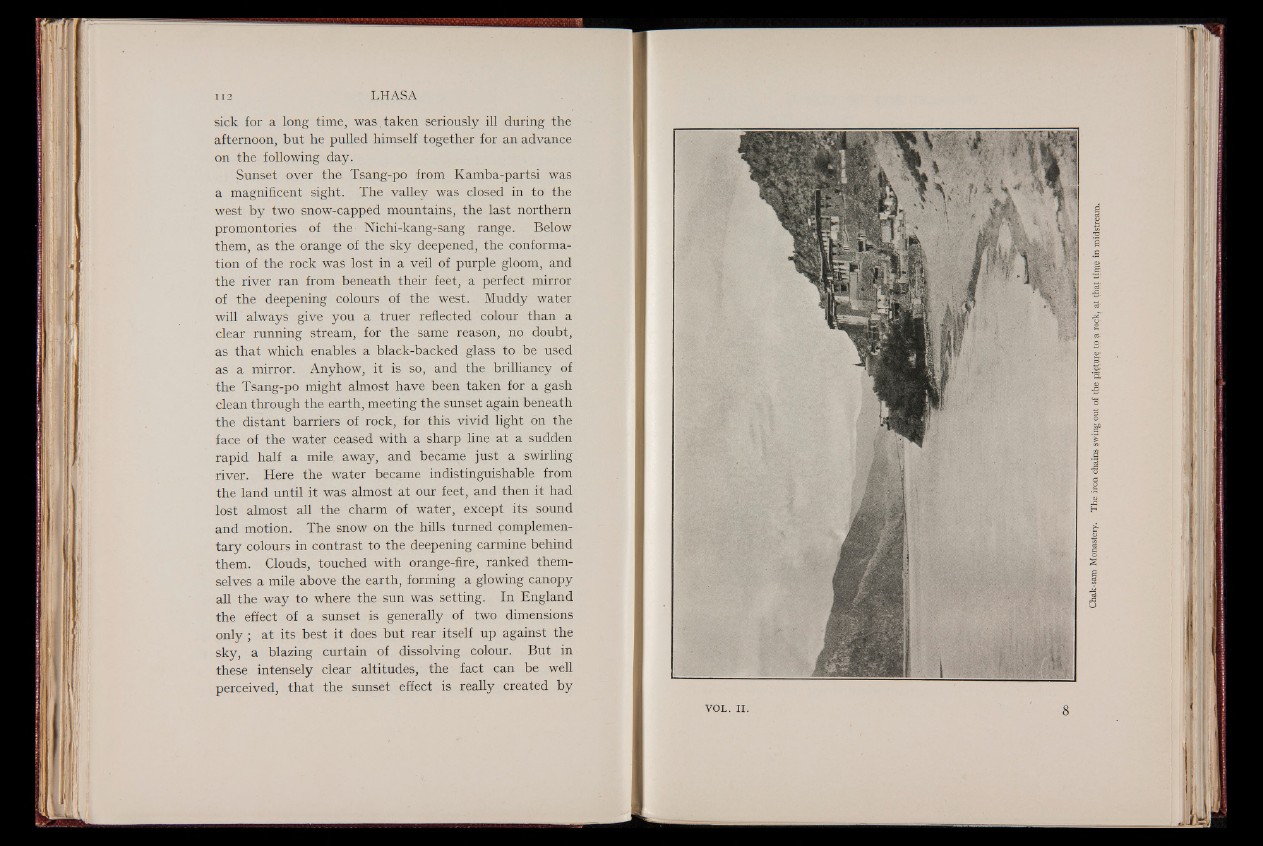
sick for a long time, was.taken seriously ill during the
afternoon, but he pulled himself together for an advance
on the following day.
Sunset over the Tsang-po from Kamba-partsi was
a magnificent sight. The valley was closed in to the
west by two snow-capped mountains, the last northern
promontories of the Nichi-kang-sang range. Below
them, as the orange of the sky deepened, the conformation
of the rock was lost in a veil of purple gloom, and
the river ran from beneath their feet, a perfect mirror
of the deepening colours of the west. Muddy water
will always give you a truer reflected colour than a
clear running stream, for the same reason, no doubt,
as that which enables a black-backed glass to be used
as a mirror. Anyhow, it is so, and the brilliancy of
the Tsang-po might almost have been taken for a gash
clean through the earth, meeting the sunset again beneath
the distant barriers of rock, for this vivid light on the
face of the water ceased with a sharp line at a sudden
rapid half a mile away, and became just a swirling
river. Here the water became indistinguishable from
the land until it was almost at Our feet, and then it had
lost almost all the charm of water, except its sound
and motion. The snow on the hills turned complementary
colours in contrast to the deepening carmine behind
them. Clouds, touched with orange-fire, ranked themselves
a mile above the earth, forming a glowing canopy
all the way to where the sun was setting. In England
the effect of a sunset is generally of two dimensions
only ; at its best it does but rear itself up against the
sky, a blazing curtain of dissolving colour. But in
these intensely clear altitudes, the fact can be well
perceived, that the sunset effect is really created by
V O L . I I .